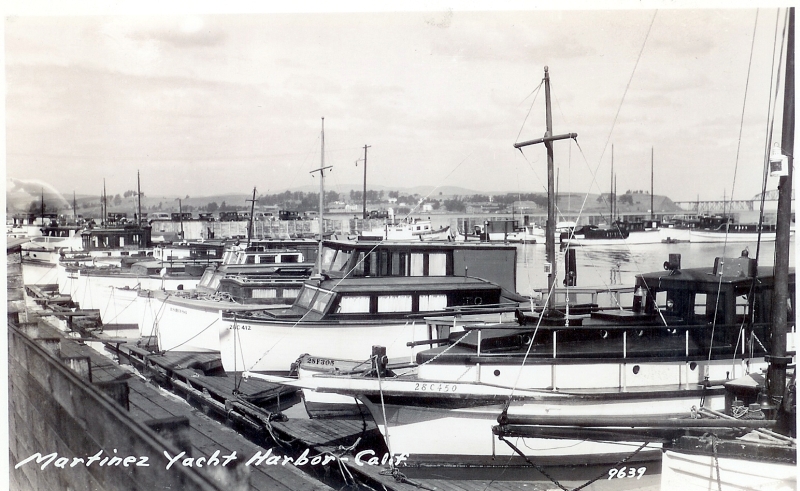

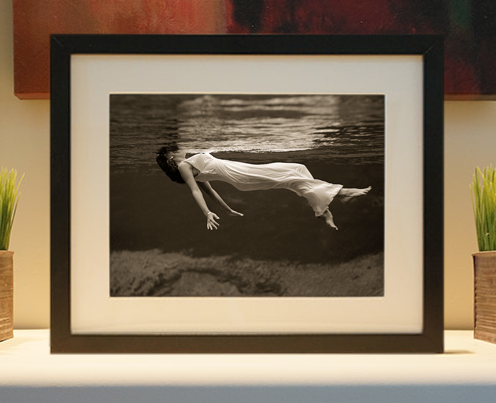
Framed or unframed, desk size to sofa size, printed by us in Arizona and Alabama since 2007. Explore now.
Shorpy is funded by you. Patreon contributors get an ad-free experience.
Learn more.

- Baldwin 62303
- Baldwin VO-1000
- Cold
- No expense spared
- Tough Guys
- Lost in Toyland
- And without gloves
- If I were a blindfolded time traveler
- Smoke Consumer Also Cooks
- Oh that stove!
- Possibly still there?
- What?!?
- $100 Reward
- Freeze Frame
- Texas Flyer wanted
- Just a Year Too Soon
- WWII -- Replacing men with women at the railroad crossing.
- Yes, Icing
- You kids drive me nuts!
- NOT An Easy Job
- I wonder
- Just add window boxes
- Icing Platform?
- Indiana Harbor Belt abides
- Freezing haze
- Corrections (for those who care)
- C&NW at Nelson
- Fallen Flags
- A dangerous job made worse
- Water Stop
Print Emporium
The Davis Family
Ethel Elvira Frances Wedmark Price and Burt Price
Summer Strings
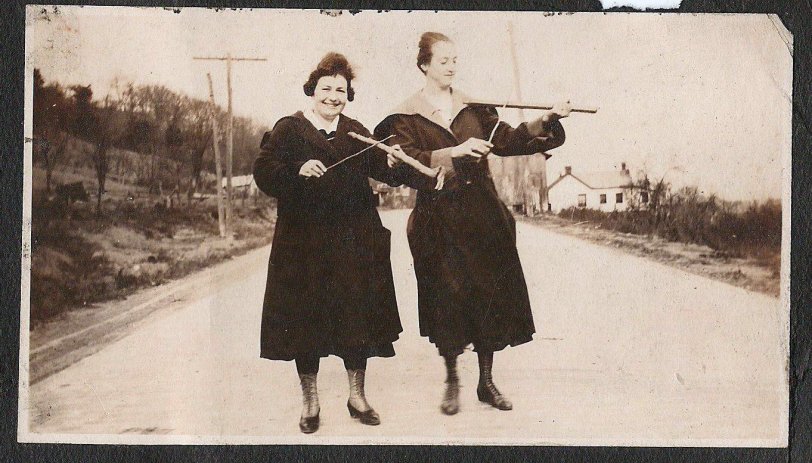
Obtained from an old, family photograph album purchased for only $2.00, this photo illustrates two women in West Portsmouth, Ohio, circa WWI.
- 1 comment
- 5223 reads
Atlantic City 1961
Jennie Christa Power
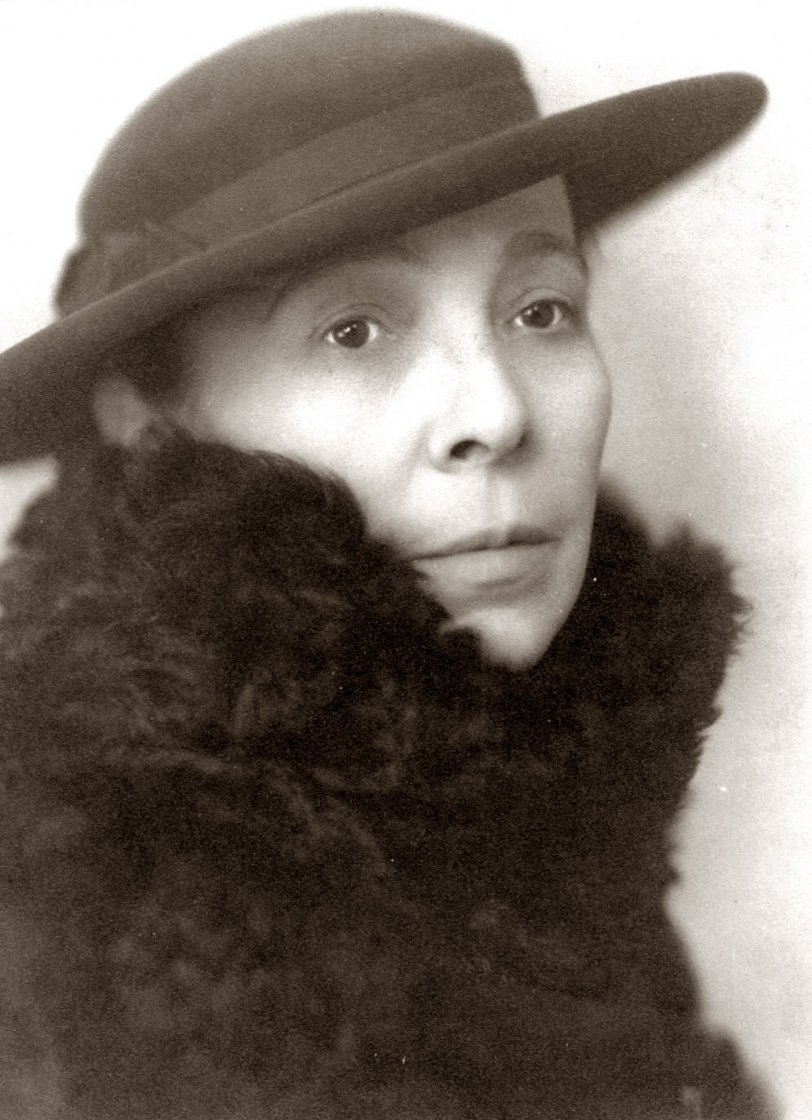
Jennie was my grandmother. She was born Jennie Christa Butcher, in 1885, in Mound City, Kansas. She died in Prince Frederick, Maryland, in 1954. She was an accomplished cellist who played in symphony orchestras and vaudeville, mostly in Iowa. This photo was taken in the 1920s in Mason City, Iowa.
- 1 comment
- 5656 reads
Pacific Highway
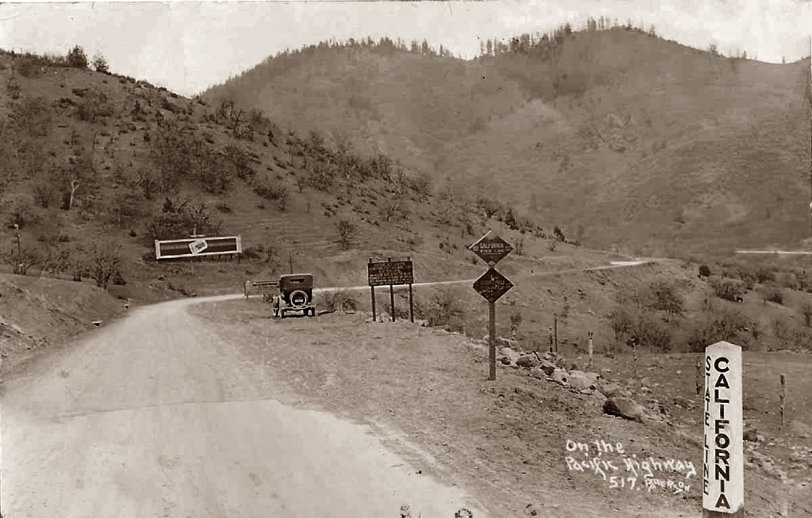
This is a postcard dated 1928 showing the Pacific Highway on the Calif.-Oregon border. Most likely Interstate 5 now. Looks like it's slow going on that gravel. No 65 mph on this road.
- 11 comments
- 13025 reads
Drilling Crew
My Uncle
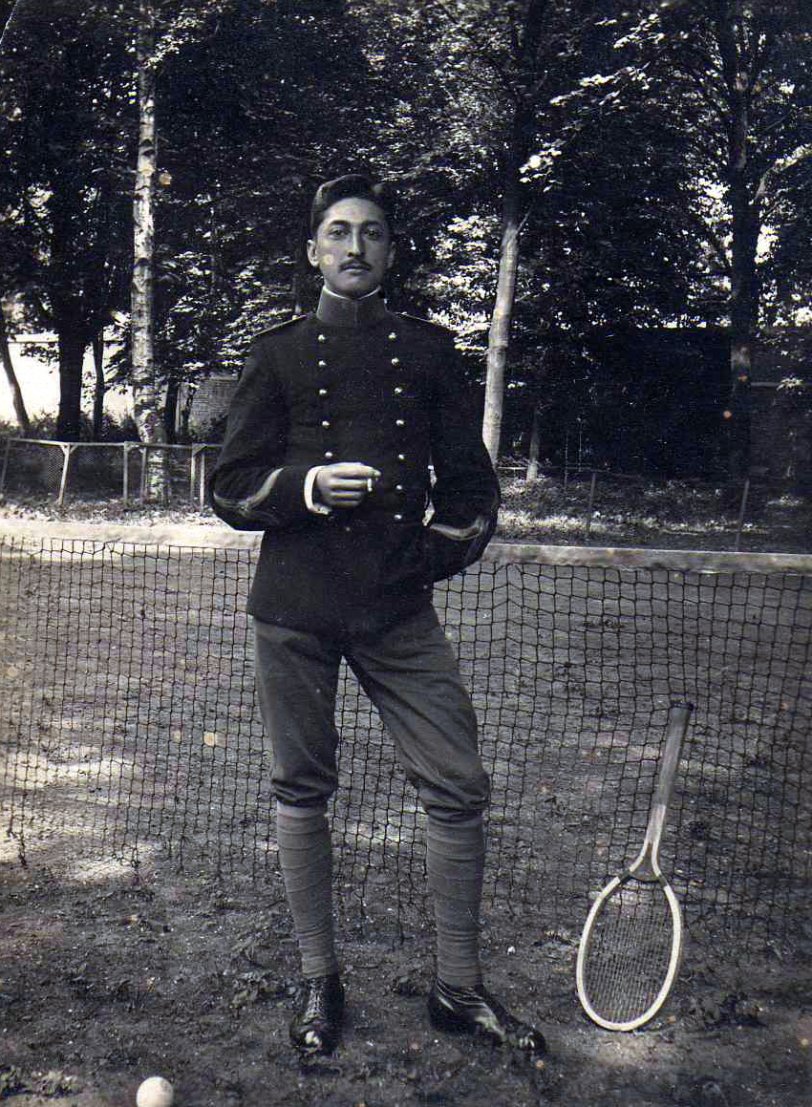
This is my great uncle probably in the 1930's, shortly before he left the Netherlands to move to the Dutch Indies. During the war he was kept in a Japanese camp and suffered greatly.
He was a pow and may have worked on the Burma railroad like my other greatuncle. He survived the war by some sort of miracle and so did his wife. They returned to the house they had built and lived in for years.
Indonesian nationalists came, my uncle came outside to see what they wanted. They shot the dog and then my uncle. As my uncle lay dying the Indonesian Nationalists wouldn't allow my aunt to go outside and help him or at least be with him as he died.
- 3 comments
- 9208 reads
My family in the Dutch Indies before the war
![My family in the Dutch Indies before the war My great-grandparents moved to the Dutch colony of Indonesia at the end of World War I, where they ran one of the few, probably the only, car garage on the emerald isles.
They had a fantastic time there, the locals were happy to work for them or succeeded well in hiding their discontempt [contempt? discontent? - dave].
This is rather common, many Indonesians were very friendly and acted happy and many Dutch had no idea many of these people hated being colonised and dominated and exploited by the Dutch.
So my grandmother and her brother Dirk grew up in a paradise, they had servants, money, space, a nice house and just lots of freedom. Not realizing anything about politics, Indonesian rebels, what was happening in the world. They were just very happy, innocent children.
When World War II began they were in their late teens, about to become adults. My grandmother married a Dutch soldier but then the Japanese came. Everybody was locked up in prison camps but, and I'm not quite sure what happened, my grandmother managed to hide with two girls who looked dark and local.
They stayed hidden in a house, Gran remaining hidden because she looked so European, the dark girls managing to get food now and then. Things were becoming very difficult as my gran was pregnant by her husband and they had to take even bigger risks.
Of course this couldn't last, they were discovered. Some or all the girls were raped by Japanese soldiers. We are not sure if my gran was raped as at that time as she was already heavily pregnant and it was a subject never talked about in the family, something we only found out when meeting one of the other girls many years later.
Perhaps Gran became pregnant because of that rape. We don't know.
After this ordeal they were taken to a prison camp or went there themselves because of what happened. In the camp Gran had her baby, my aunt Annemarie. Life in the camp was terrible, my aunt as a toddler had a nightmare all her life of a woman beaten to death by the guards, also my gran was beaten a few times. Gran later confirmed that my aunt had seen such things as a toddler.
Once when a Japanese soldier or officer started beating Gran, Annemarie escaped the grasp of one of the other women, ran up to the Jap and started fighting him. Everybody held their breath, fearing the worst. The Jap looked at the little girl and then simply walked off. Other family members didnt survive the camps.
My Uncle Dirk, a prisoner of war, was forced to work on the Burma railroad, a experience that broke him forever. He was and still is a strong and proud man but he never got over it. He still hates everything Japanese, caused a big row when his son went on a trip to Japan. He never talked about what he went through.
When the war finally came to an end my grandmother, aunt and uncle were close to dying. Although we all hate the atom bombs that fell on Japan we also realise that nobody in our entire family would be alive today without them.
My grandfather though was somewhere on the other side of the country when he was released because the war was as good as finished. He heard where his family was being kept prisoner and decided he couldn't wait any longer.
First I didnt believe this story but its now been confirmed.
My grandfather escaped from the POW camp (not difficult, few guards left, war pretty much over), he went to a japanese airfield and hijacked a plane!!! He got on board of a plane and forced the pilot to fly him to the other side of the country. Knowing my granddad he would have snapped the japs neck in a second if he wouldnt have listened.
At this time the survivors of my family were hiding inside the camps, now the indonesians (fuelled with hate by the japs) stood up against the Dutch. In a strange reverse situation the japanese guards now had to defend their former prisoners from the indonesians.
My family witnessed fellow ex-prisoners disapearing at night, being found the next day brutally murdered.
Then in a convoy they went to the harbour, being shot at by indonesian rebels, knowing very well that they were shooting at women and children who had just survived years in a camp. When they arrived on a british ship my aunt remembers a very young british sailor looking after her while the rest of my family sort of collapsed. He was very sweet to her, treating her as his little sister.
Singing to her, giving her sweets, etc.
My aunt still gets emotional when she thinks about how nice he was, the first nice man she had seen in her life as there had been no men in the camp besides the japs.
Many years later she would marry a sailor, she told him that she wouldnt even had talked to him if he hadnt been wearing the uniform... heheh some things run in the family.
My family left indonesia in a plane with no door, probably a dakota used for airdrops.
They never went back.
In the Netherlands they simply couldnt get used to normal life, nobody talked about what happened and the dutch had their own war traumas to handle.
My grandmother died very young, probably because the shock her system got in the camp, she nearly died several times and her body sort of gave up.
My greatuncle Dirk left the Netherlands and went to australia, he only came back once.](https://www.shorpy.com/files/images/family ypey.preview.jpg)
My great-grandparents moved to the Dutch colony of Indonesia at the end of World War I, where they ran one of the few, probably the only, car garage on the emerald isles.
They had a fantastic time there, the locals were happy to work for them or succeeded well in hiding their discontempt [contempt? discontent? - dave].
This is rather common, many Indonesians were very friendly and acted happy and many Dutch had no idea many of these people hated being colonised and dominated and exploited by the Dutch.
- 15 comments
- Read more
- 25090 reads
John Deere Model D Tractor
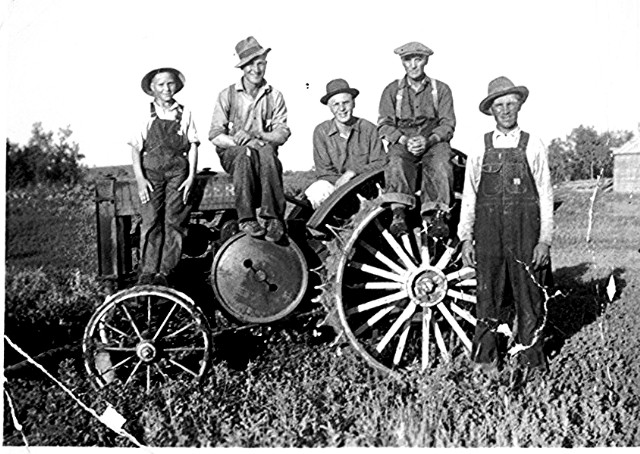
My dad and grandfather with local farmers in front of the old steel wheeled John Deere Model "D" tractor in rural Alberta.
- 4 comments
- 24963 reads





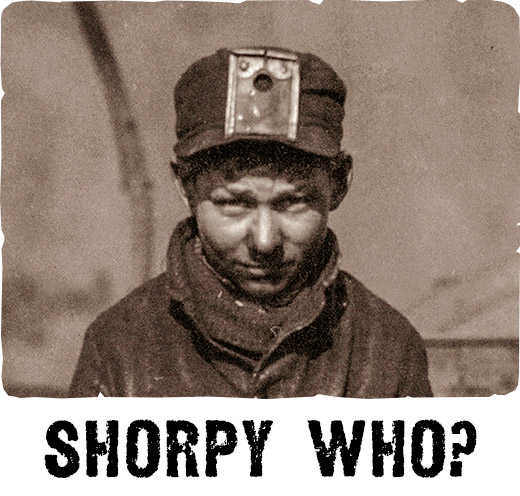
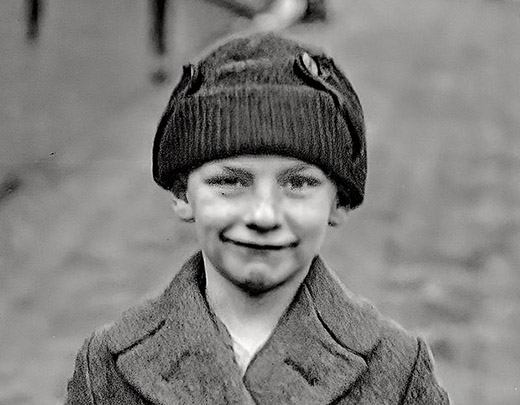
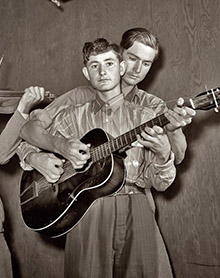
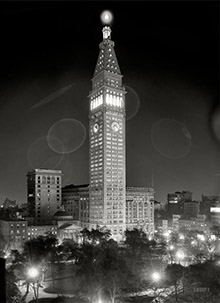
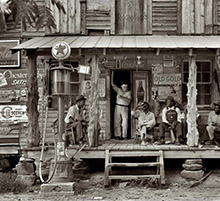
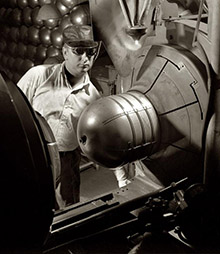
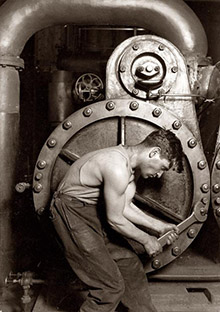
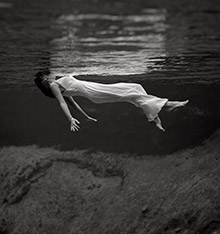
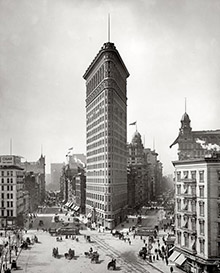



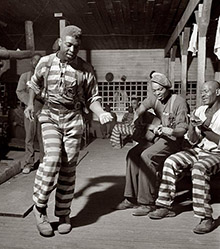
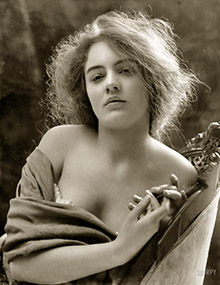
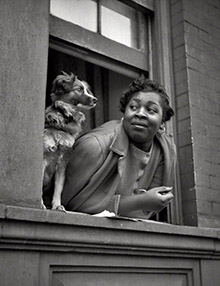

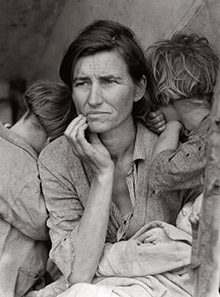

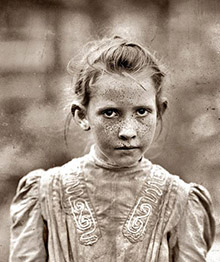
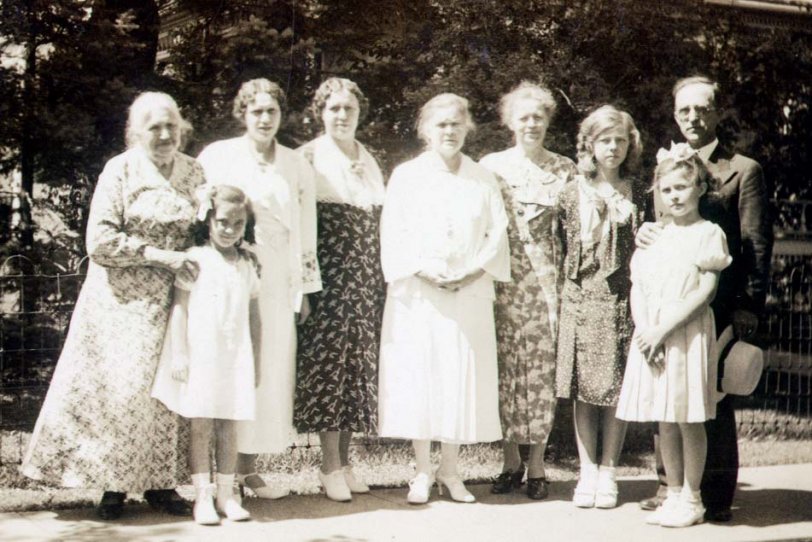
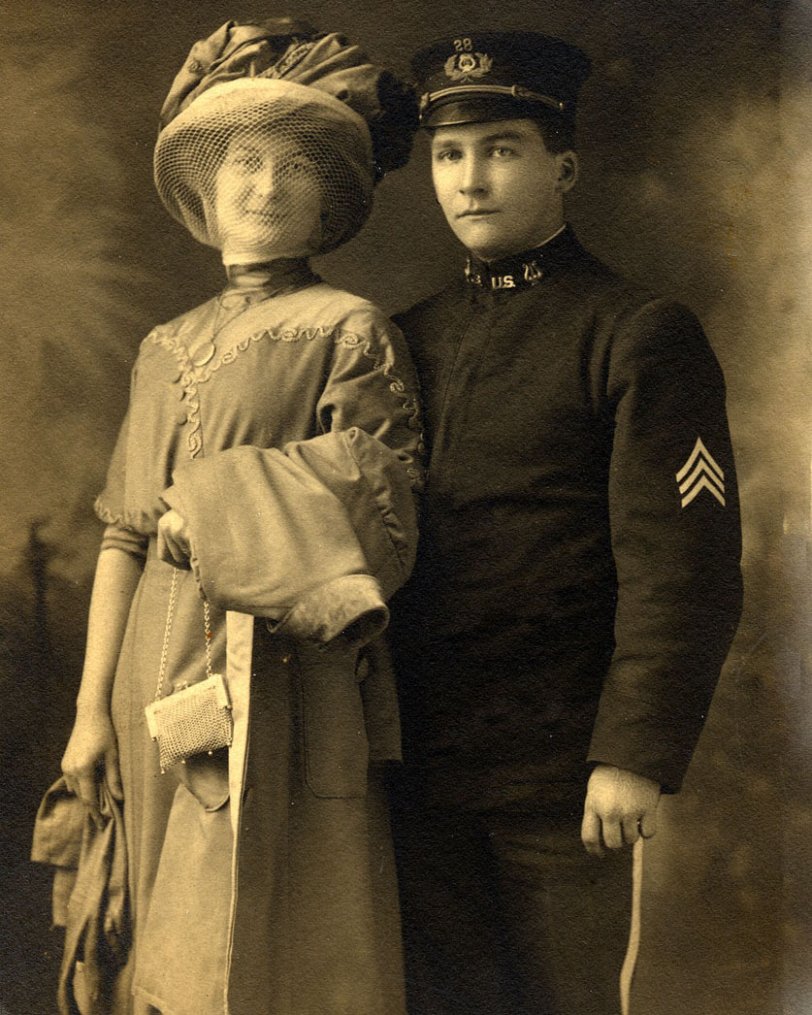
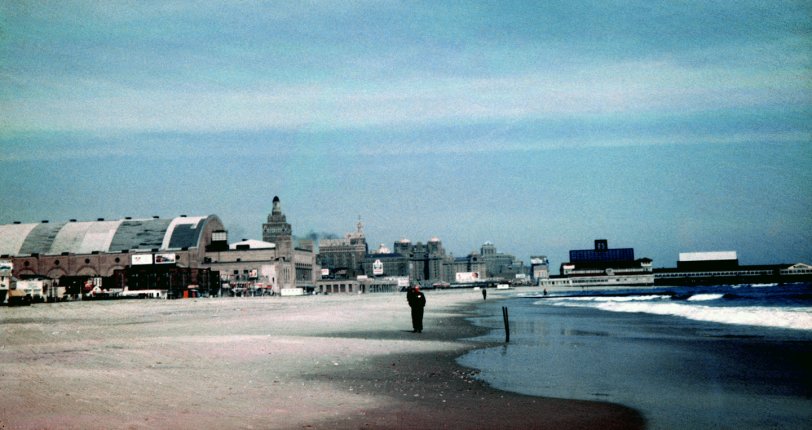
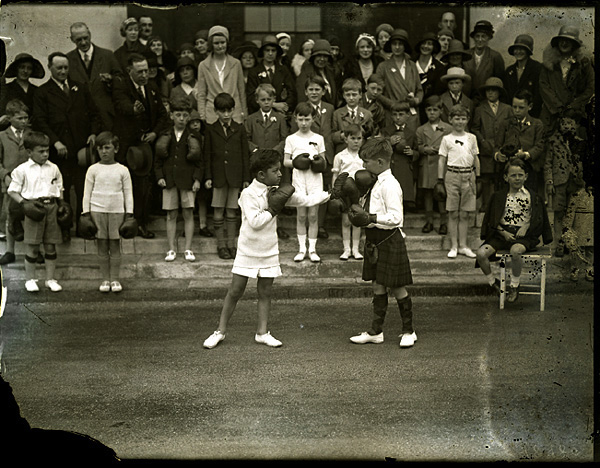
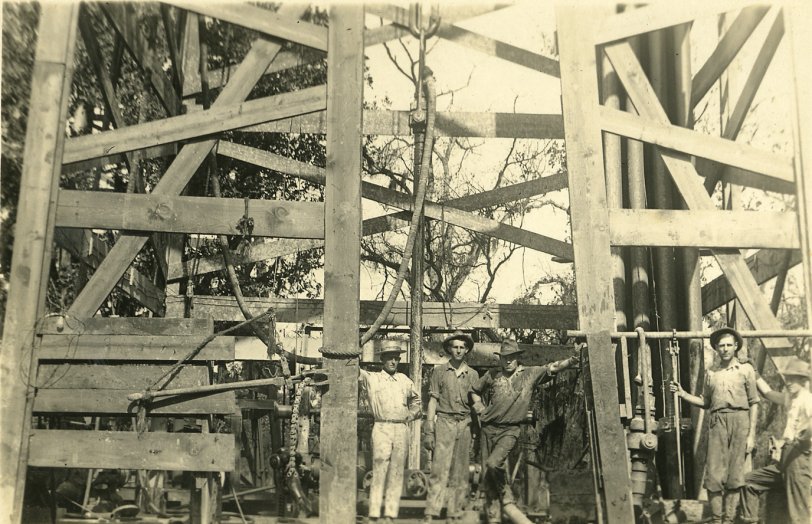
.jpg)
 (B&W).jpg)

